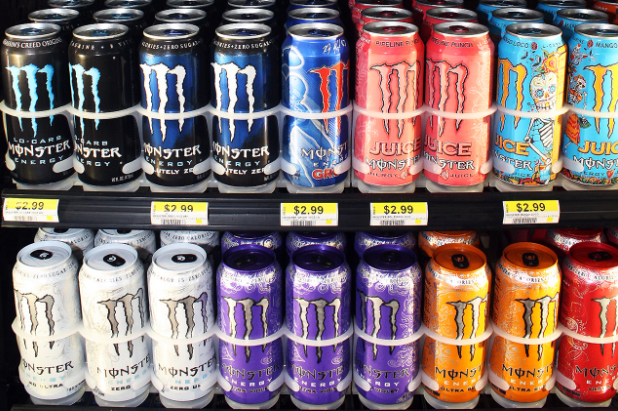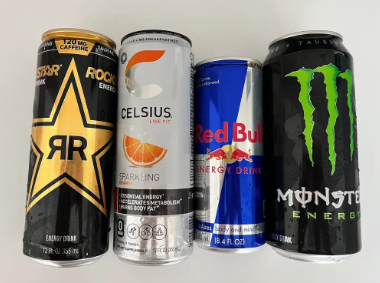
Kylie Drunasky | Writer
September 12, 2024
Students have schedules packed with sports, performing arts, friends, and after-school club activities that can take up their entire day after school. This causes many to come home late at night, just to remember the math test they forgot to study for or an assignment due at 12am that night. After such a long day, they have no energy to do any of their work, but they refuse to fail their test or get a zero on their assignment. Students then resort to a Celsius, Red Bull, Monster, or any energy drink they can find in their fridge that can keep them awake through each assignment. Only for it to repeat the next day, causing an addiction to caffeine for fuel.
The increase in the popularity of energy drinks targeting high school students has brought many questions and concerns. There could be many reasons why students pick energy drinks as their source of motivation or energy, and many dangers come with this fuel choice as well.

Some teens choose energy drinks as a last resort to the energy they need to cram in midnight studying. The next morning, they take a second drink to keep them functioning on 4 hours of sleep throughout the day. When that wave of energy wears off, the student could then be overwhelmed with even more homework or after-school activities following up with another night to stay up to do schoolwork. Teens then rely on another drink or “dose,” which can be similar to the start of an addiction, instead this situation involves energy drinks. With teen’s consumption of fueling liquids taking up most of their diet, this can lead to a lack of food. Knowing that food gives the body energy, choosing drinks over food is also a factor in students feeling so tired.
Students may also feel the demand for caffeinated drinks because they desire the feeling it gives off. Bridget Anderson, a sophomore at San Clemente, drinks energy drinks because they give her “a type of energy [she] doesn’t often feel. Energy drinks wake [her] up to help [her] be more awake and alert in interactions with people, instructions, and lectures in class.”
This rapid increase in teens craving energy drinks can provoke many health concerns that they might not be aware of. Students may think of caffeinated drinks as any other ordinary beverage, not knowing that their heart rate will increase according to the amount of caffeine and stimulants they intake. In her article, “Is caffeine a friend or foe?” Laura Williamson can further outline the effects of caffeine, as it causes people to “feel anxious, raise blood pressure and lead to heart palpitations and trouble sleeping.” When an addiction to these drinks starts, it can be difficult to stop. Just like a drug. Laura Williamson continues her explanation of how just deciding to stop consuming these drinks “can lead to symptoms of withdrawal, such as headaches, fatigue, and depressed mood.”
Everyone can agree that attending high school comes with many responsibilities and a lot more work that will overflow into homework or hours of extracurricular activities. Students must be able to manage how much they can fit into a day, following how they would obtain the energy that is needed to perform well throughout their schedule. If energy drinks are what teens think is best, it is important to know the effects of them and how to limit themselves.

Leave a Reply